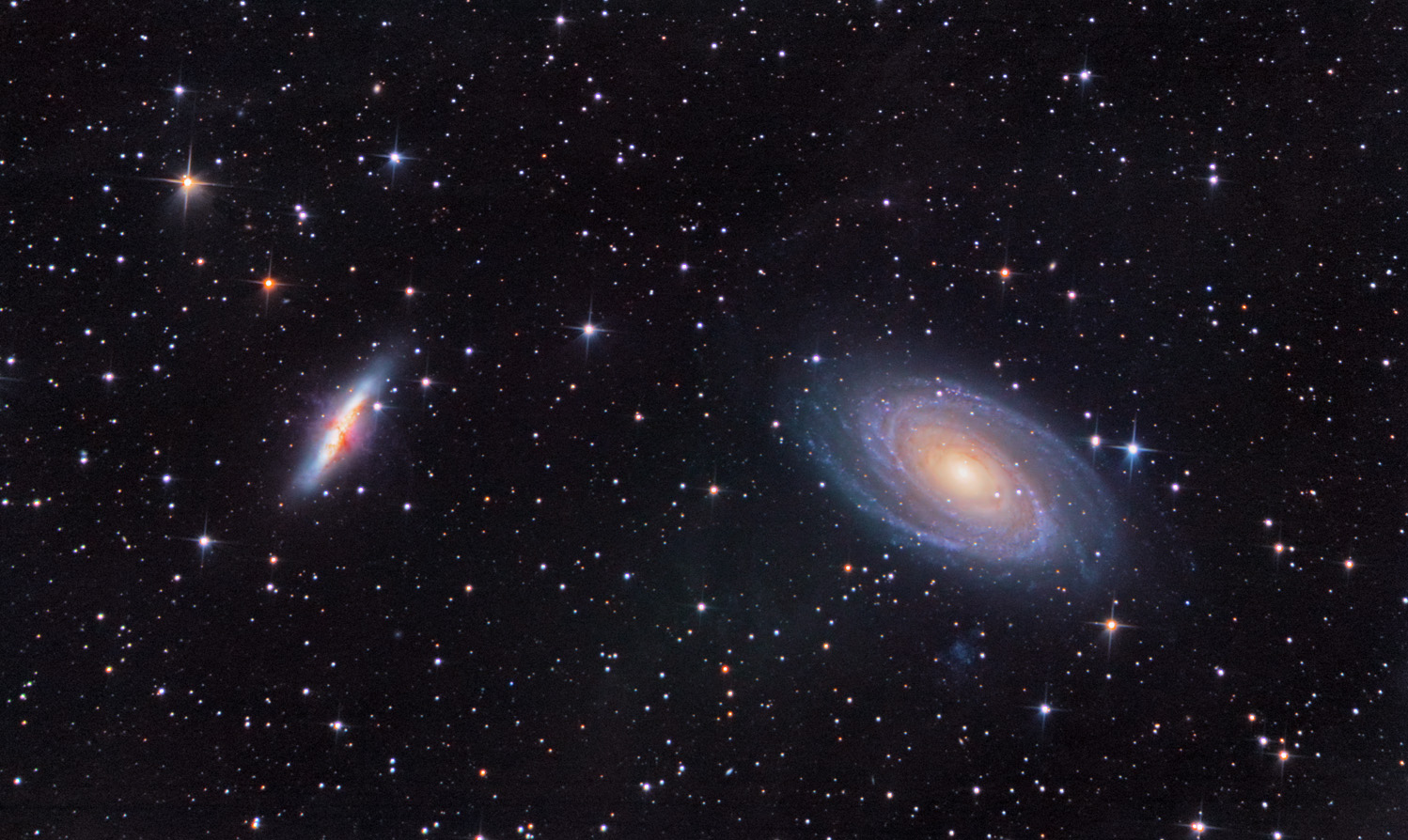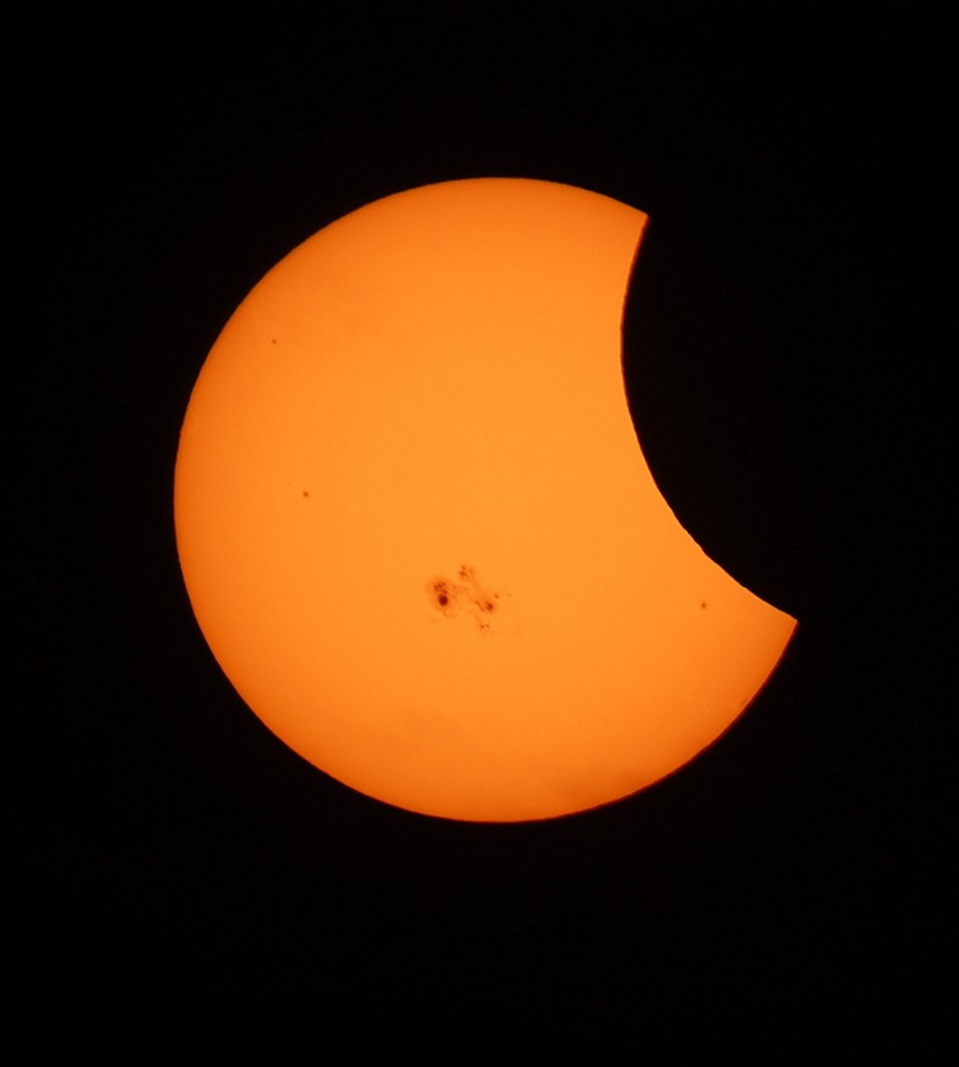(Not the movie.)

Jared Bowens / S&T Online Photo Gallery
This was going to be the year I finally did some galaxy hunting — other than Andromeda (M31). I had plans, y’all.
For months, I dreamed of settling outside on clear nights in March, April, and into May, and zipping through a GoTo alignment before slewing around to new-to-me fuzzy dots in the sky.
Part of stargazing’s allure is the idea that I’m turning my attention to other worlds — at least to the suns illuminating those distant planets. When it comes to galaxies, each blurry smudge in my eyepiece has the potential host to tens of billions of planetary systems.
But I also have to be realistic. I don’t have a light-bucket Dobsonian or wide-aperture SCT in my telescope arsenal, but I did recently purchase a NexStar 127SLT from my astronomy club’s library. Not true galaxy quest equipment, but the 127SLT — nicknamed “Nichelle,” in honor of the late Nichelle Nichols — is the biggest telescope I can reliably set up and maneuver.
My expectations weren’t high. Nichelle is a small scope with a narrow field of view. I’m also in a Bortle class 6 zone in the suburbs close to a big city. I was prepared for disappointment.
Determined to make the best of it, however, I bookmarked articles and flipped through astronomy guides to compile my list of galaxy-quest targets. I’d start with the smaller-magnitude Bode’s Galaxy (M81) and work my way to dimmer galaxies over successive evenings. I figured this would increase my chances of seeing something right away while I test the limits of my little GoTo. The Needle Galaxy (NGC 4565) at magnitude 10.42 would likely be beyond Nichelle’s capability under suburban skies, but I’d hunt for it anyway.
I also acquired a collapsible stool that’s easier to carry and adjust, and I found an outdoor dog bed so Jax the Danelab could join me. I pondered whether my quest warranted a theme song, something peppy like Indiana Jones but also drawn out like Bolero, since astronomy requires patience and time. I was so ready.
Of course, you know what happened. Clouds. Weeks and weeks of rain and overcast skies. My columns this year might as well be retitled, “Meditations on Atmospheric Water Vapor.” I’d looked forward to a whole season of galaxy hunting, but the weather had other, very stubborn plans.
My frustration spilled over into a lunchtime conversation with my partner, M. In the middle of the day, the skies would open wide for glorious sunshine to pour through. Complaining about how it’s never clear after dark, I demanded (and misspoke), “Why can’t it be this sunny at night?!”
Instead of exploring the greater universe, I messed around in the Stellarium app to approximate what I might see through a real-life eyepiece under clear skies. You’d think that would be a poor substitute, but I was surprised by how much fun I had galaxy hunting on my MacBook Air.
Finding Deep Sky Objects in real time isn’t the only appeal of stargazing. It’s most of the appeal, sure, but I’ve also enjoyed the learning that comes along with it — like reading about the members of the Leo Triplet and finding out more about the discovery and asymmetry of the Pinwheel Galaxy (M101), even if I couldn’t find them in the sky myself yet.
Then it happened: a clear night at last! But the skies were more soupy than transparent, and the first-quarter Moon washed out the Beehive Cluster and even Leo’s backward question mark. Under better conditions two nights later, I was overjoyed to find M82 with my little scope! A wonderful and surprisingly distinct little smudge. The brighter but more diffuse M81 eluded me, possibly because I was searching at 47× magnification. I’ll try backing off next time.
There is genuine consolation in knowing that none of my prep work was done in vain. Galaxy season will come around again next year. Maybe I’ll get an earlier start, say in the early morning hours in February, weather permitting. And we’re shifting soon into globular cluster season, too, even if “Glob Quest” doesn’t have quite the same ring to it.
Maybe 2023 marks the Galaxy Quest That Wasn’t, but I feel as excited about galaxy season today as I did back in March. The universe endures — with its trillions of potential worlds — despite a few months of rain. Although I missed out on seeing so many of those galaxies this time, I know they’re out there, beyond my home planet’s cloud cover.
 8
8









Comments
Lucinda
May 4, 2023 at 11:47 am
I also enjoy the reassurance that those deep sky objects that I didn't manage to find this year will be up there every year at the same time for the rest of my life. So, no hurry! This is especially good because I don't use a GoTo, I prefer star-hopping. The extra effort makes finding my objects that much more rewarding, and once I've found something the first time, I can get to it pretty easily on subsequent attempts. I spend a lot of time in Scorpio and Sagittarius in the summertime. "Neb Quest."
You must be logged in to post a comment.
Jen Willis
May 5, 2023 at 4:41 pm
"Neb Quest"—I like it. I'm also looking forward to summer exploring, though I'll be on the hunt for viewing locations where the southern sky is less obstructed. Scorpio barely lifts above the horizon of houses and trees in my neighborhood.
You must be logged in to post a comment.
gokidd
May 4, 2023 at 3:34 pm
I feel ya, Jennifer. I just counted up the clear nights I've had this Galaxy Season and it adds up to ONE. And that single night was following a nine-hour drive home. When I checked the predicted sky conditions, I knew it was my only foreseeable chance. I fought off sleepiness and burning eyes, but was rewarded with my first successful auto-guiding photo session. Target was M80 / 81. This is what happens when one buys a telescope rig RIGHT as winter sets in.
Signed, Patience
You must be logged in to post a comment.
Jen Willis
May 5, 2023 at 4:43 pm
Patience, what an ordeal! I'm glad your perseverance was rewarded at last. Wishing you many clear nights going forward.
You must be logged in to post a comment.
Anthony Barreiro
May 6, 2023 at 7:09 pm
Why can't it be this sunny at night? LOL.
Best wishes for clear skies. If, as Louis Pasteur said, chance favors the prepared mind, clear skies favor the prepared astronomer! All our research and planning will stand us in good stead.
My struggles to find galaxies even though I know exactly where they are in the sky add to my admiration for the intrepid astronomers who discovered them in the first place, methodically scanning the whole sky. William and Caroline Herschel in dreary England are high on my list of heroes. At least they didn't have to contend with light pollution.
You must be logged in to post a comment.
Anthony Barreiro
May 6, 2023 at 7:21 pm
Best wishes for clear skies. Chance favors the prepared mind, and clear skies favor the prepared astronomer! Research and planning pay off eventually.
My struggles to find galaxies even when I know exactly where they are in the sky adds to my admiration of the intrepid astronomers who discovered them through methodically scanning the sky. William and Caroline Herschel in dreary England are high on my list of heroes. At least they didn't have to deal with light pollution.
You must be logged in to post a comment.
Anthony Barreiro
May 8, 2023 at 2:50 pm
Chance favors the prepared mind, and clear skies favor the prepared astronomer. All the research and planning pays off eventually.
I'm in awe of the astronomers who discovered these galaxies by patiently and methodically scanning the sky for faint fuzzies. William and Caroline Herschel in dreary England are high on my list of heroes.
You must be logged in to post a comment.
Jen Willis
May 10, 2023 at 7:36 pm
Excellent point. I often think of the desert-dwelling ancients who paid such close attention to the changing skies. But those astronomers at more northern latitudes with regularly rainy weather? Wow.
You must be logged in to post a comment.
You must be logged in to post a comment.